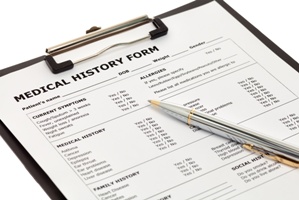 Complex regional pain syndrome is a complicated, chronic, and painful condition that can develop after an injury. It can significantly impact your quality of life and your daily activities. Therefore, if a doctor mentions complex regional pain syndrome to you after a car crash, it is important to learn more about this condition and about what you can do to protect your fair recovery.
Complex regional pain syndrome is a complicated, chronic, and painful condition that can develop after an injury. It can significantly impact your quality of life and your daily activities. Therefore, if a doctor mentions complex regional pain syndrome to you after a car crash, it is important to learn more about this condition and about what you can do to protect your fair recovery.
What Is Complex Regional Pain Syndrome?
Complex regional pain syndrome typically impacts one area of the body such as an arm or leg. Researchers believe that it is caused by damage to the nervous system.
Symptoms of complex regional pain syndrome include:
- Pain
- Changes in skin color
- Changes in skin texture
- Changes in temperature and abnormal sweating
- Swelling
- Join stiffness
- Difficulty with muscle movement
- Tremors, jerking, or an abnormal fixed posture (dystonia) of the limb
If you experience any of these symptoms, your doctor may conclude that you have complex regional pain syndrome. Currently, there is no definitive test for this medical condition. Instead, your diagnosis will be made based upon:
- Your medical history
- The symptoms you experience
- Testing to rule out other medical conditions with similar symptoms, such as arthritis and Lyme disease
- MRIs or bone scans may, in some cases, be helpful in making a diagnosis
Not all cases of complex regional pain syndrome are the same. Doctors will further define your condition as one of the following:
- CRPS-I. Complex regional pain syndrome I was previously known as reflex sympathetic dystrophy syndrome. It occurs without a confirmed nerve injury.
- CRPS-II. Complex regional pain syndrome II was previously known as causalgia. It occurs with a confirmed nerve injury.
The prognosis for patients with complex regional pain syndrome varies. Some people with this condition have relatively mild symptoms that go away over time while other people have significant symptoms that continue as a long term disability.
Treatment for Complex Regional Pain Syndrome
There are a variety of treatments that can be used for complex regional pain syndrome, including:
- Prescription drugs. There is no specific medication that is FDA approved to treat complex regional pain syndrome. However, anti- inflammatories, corticosteroids, drugs used to treat seizures or depression, opioids, and other medications may be part of a treatment plan.
- Physical therapy. Physical therapy exercises can increase blood flow, increase flexibility, and strengthen the affected area.
- Occupational therapy. This type of therapy can teach you a different way to use your body to accomplish your tasks of daily living.
- Sympathetic nerve blocks. Injections of anesthetics next to the spine can block some pain and improve blood flow.
- Counseling. You may experience depression, anxiety, and other psychological symptoms and you may benefit from therapy.
Other experimental treatments are also available. You should speak to your doctor about which specific treatments are right for you.
Legal Compensation for Complex Regional Pain Syndrome
It isn’t clear why some people develop complex regional pain syndrome after a traumatic injury and others do not develop this condition. However, what is known is that more than 90% of complex regional pain syndrome patients had the condition triggered by a traumatic injury.
If you have been diagnosed with complex regional pain syndrome after a car crash, you may be entitled to damages for your injuries. These car accident damages include compensation for things such as past, current, and future:
- Medical expenses
- Lost income
- Out-of-pocket costs
- Physical pain
- Emotional suffering
In order to get the damages you deserve, you are likely going to have to fight hard to protect your rights. The insurance company that is responsible for paying your damages is going to want to pay you as little as possible so that that the insurer can keep as much money as possible in its own hands.
Our Louisville car accident legal team is here to help you and to make sure that your rights are protected. Our staff nurse and experienced injury lawyers will be happy to review your case and, if you have a potential claim, to work tirelessly to get you the compensation you deserve. Call us, or reach out to us via this website, today for a free, no-obligation consultation about your rights.
Related Links: